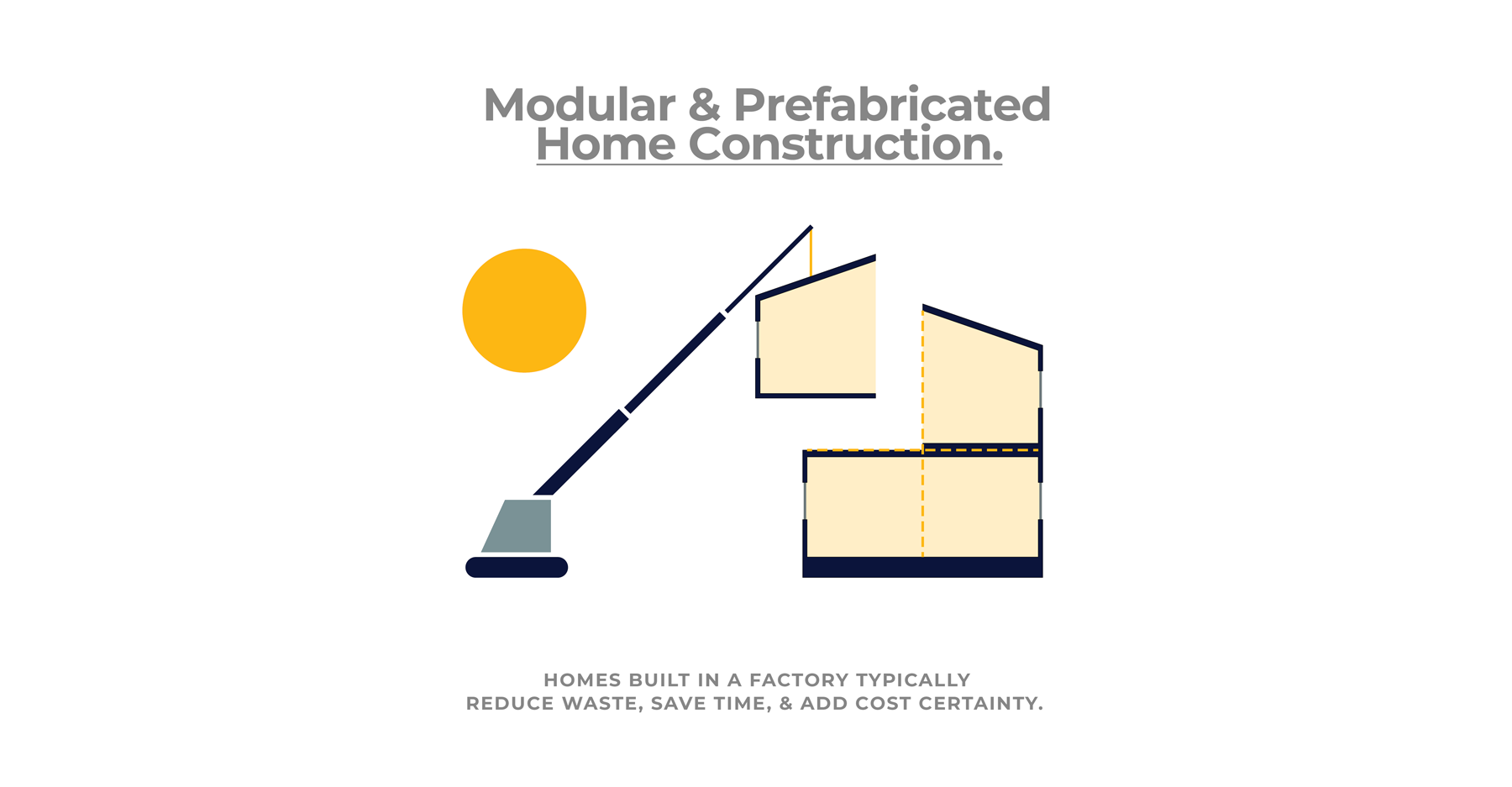
WHAT IS MODULAR & PREFAB HOME CONSTRUCTION?
Modular and prefabricated construction methods have revolutionized the home building process, involving the bulk of the work in nearby factories before transporting the components to the site for assembly. While these methods present various advantages and disadvantages, their sustainability aspect primarily lies in minimizing building material waste.
Traditional construction and demolition contribute to over 500 million tons of debris annually being deposited into landfills across the country (EPA). In contrast, modular construction, being factory-based, significantly reduces scrap material by reusing standardized materials in each build.
Furthermore, modular and prefab builds lessen on-site environmental impact by reducing construction time, resulting in minimal disruption to vegetation from heavy machinery. However, transportation of hefty panels or units, along with occasional reinforcement requirements, may offset these benefits, raising questions about the overall pollution reduction.
HOW DOES IT EFFECT BUILDING COSTS?
While it's commonly stated that modular homes can cut building costs by nearly 20%, our firm's experience suggests that the cost savings from prefabricated construction techniques may not always reach such substantial levels. To capitalize on the potential cost savings of a modular or prefabricated build, it's crucial for our architects to be informed early on about this intention.
This ensures that the design can be optimized to accommodate these construction methods, thus maximizing efficiencies. To maximize the cost savings from a modular or prefabricated build, it is important that our architects know
early on that this is the intent. This way our architect can design the home with these construction methods
in mind and maximize the efficiencies.
That said, two primary benefits of modular construction stand out: cost predictability and time efficiency. By operating in controlled factory environments, these builders can offer more accurate bids, minimizing uncertainties typical of traditional builds. Furthermore, the absence of weather-related delays allows for shorter project timelines, enabling modular builders to outpace most on-site contractors.
